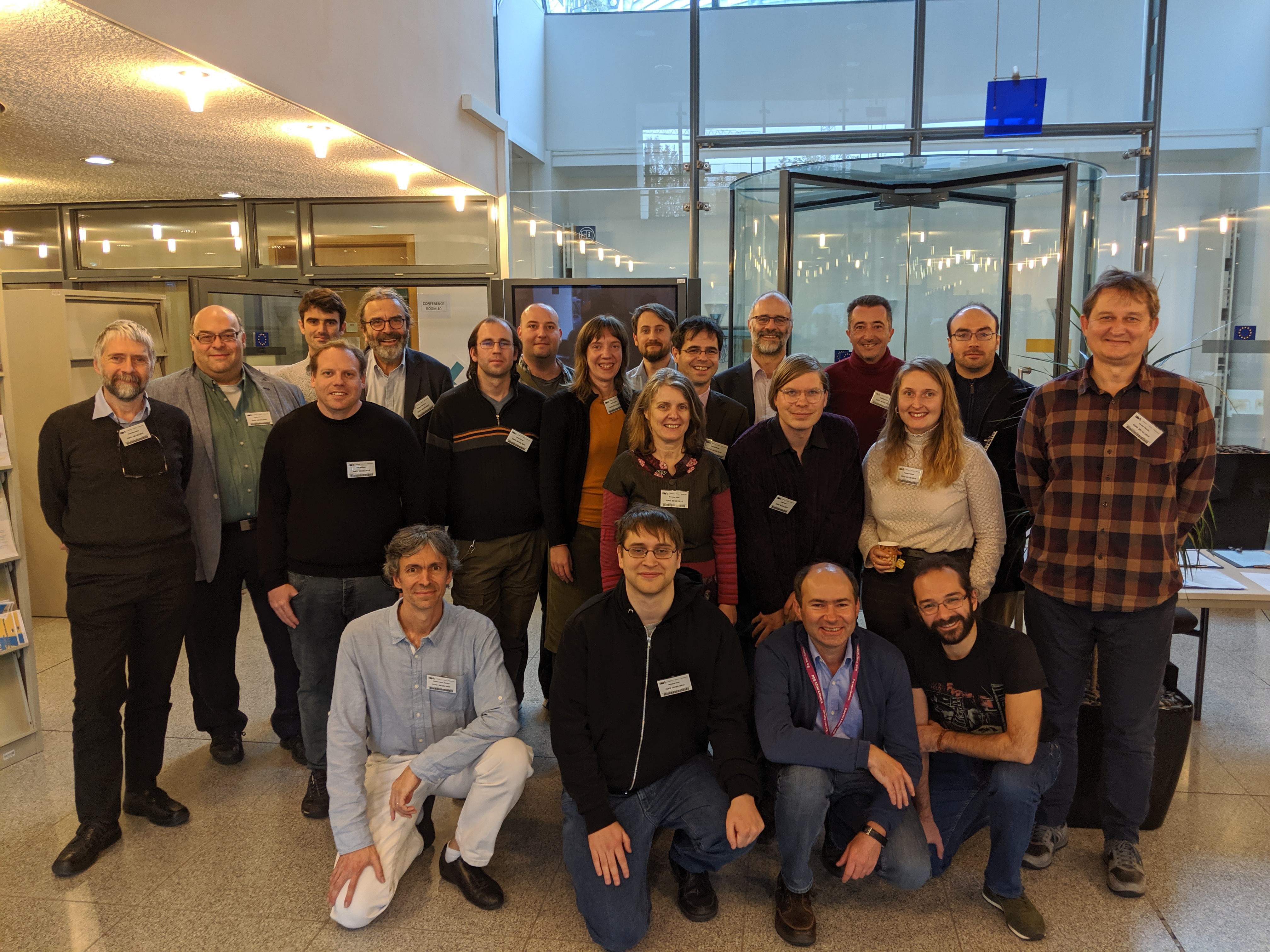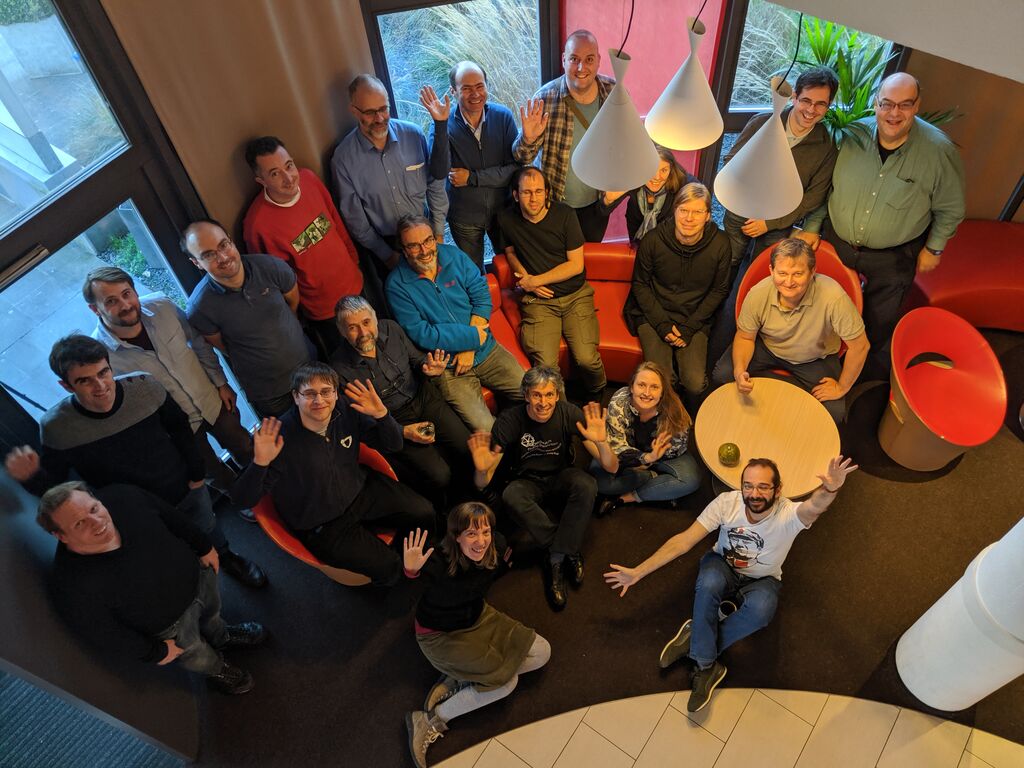On October 30th of 2019, OpenDreamKit underwent its final formal review by the European Commission, represented by three reviewers and our finance and project officers. About twenty of us went to Luxembourg for two days of rehearsals before an intense day of presentation of our achievements in the last reporting period, and in the project as a whole.
After the presentations and in-depth discussions, the feedback from the reviewers was enthusiastic, with comments such as “[you have] done extremely good job” or “heroic management” and strong encouragements to keep applying and shooting for the moon. As in previous reviews, we highlighted that OpenDreamKit’s work was but the tip of the iceberg; all we did was to exploit the special resources the EU entrusted us to knock down some tough hurdles that were preventing the ball to roll.
The pride shall go to our communities!
Content
Nicolas launched the day by showcasing some of our use cases, before telling a story of his successive PhD students, to illustrate how the very diverse achievements of OpenDreamKit and our communities were coming together to enable novel experimental research.
Min presented our contributions to Jupyter-based user interfaces and virtual environments, reflecting along the way on the future of the Jupyter community. The impact was illustrated by software demonstrations by Marijan (micromagnetism), Olexandr (GAP), Olivier (training), and Marcin (3D).
Clément – supported by software demonstrations of Steve (GAP), Bill (Pari), Daniel (Singular) – reviewed the achievements toward higher performance on modern architectures, both within computational components and when combining them. He highlighted algorithmic advances, common trends, lessons learned and perspectives.
Izabela and Nicolas detailed the project management: use of resources, explanations of deviations, risks management, follow up to recommendations, etc; then we received feedback from our financial officer on how to polish our financial and technical reports.
Luca showcased the variety of Virtual Research Environments that can be constructed from our toolkit. He revealed the massive plumbing efforts (modularity, packaging, …) that underlined it, and their impact on usability and sustainability.
Michael explained the research that was conducted on exploiting mathematical knowledge for interoperability between mathematical computational systems, databases, and even proof systems; concrete outcomes range from proof of concepts to production grade tools, notably to support FAIR mathematical data.
Viviane, with the help of Erik, outlined our massive community building, training, and dissemination activities. 110 events touching 1800 trainees and 5000 students, and involving a majority of the consortium. The reviewers were amazed and said so, adding that the level of outreach went far beyond anything they imagined for this project; they specifically congratulated Viviane for the strong diversity actions.
Nicolas was left with the tough task of wrapping up four years of hard work by 50+ participants. He highlighted the keys to success, notably the open management and bottom-up approach, the impact of Research Software Engineers, the needs of the involved communities, and the ongoing efforts toward future funding. He concluded with his deep gratitude to the consortium for this amazing human endeavor, with a special thought to all those that entrusted years of their career to temporary positions in this project.
Aftermath
After the reviewers comments and departure, we all were left with an intense feeling of having built together a community. Hence, before we all went for a well deserved celebration dinner, we spontaneously started to brainstorm about the future of that community, beyond ephemera and geographic artifacts such as EU projects.
Stay tuned :-)


